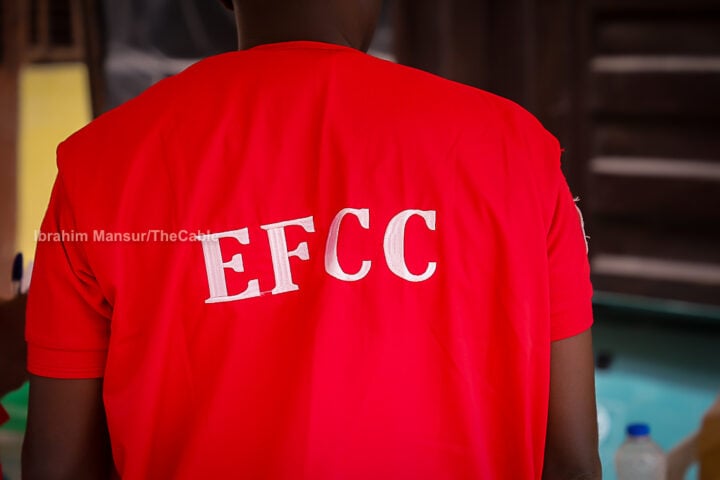Expert Claims Ponzi Scheme Victims Knowingly Invested Due to Hardship

Nigeria is currently facing one of its most severe economic crises in decades, a situation that is compelling many of its citizens to engage in high-stakes gambles with fraudulent investment platforms. In a desperate bid to escape poverty, individuals are knowingly risking their funds, often losing everything. A significant example of this trend is the Crypto Bridge Exchange (CBEX), a cryptocurrency-based Ponzi scheme that, according to an Al Jazeera report, collapsed in April 2025. The collapse resulted in the defrauding of investors of an estimated ₦1.3 trillion, which is approximately $840 million.
Joachim MacEbong, a senior analyst at Stears, a Lagos-based financial advisory firm, explained to Al Jazeera that the desperation driving these investment decisions is not solely due to ignorance. He noted, “There are those who know it is a scam, but they always feel they could cash out before everybody else.” MacEbong emphasized that such economic hardship significantly increases people's willingness to take risks and gamble with their crucial financial resources.
Launched in July 2024, Crypto Bridge Exchange (CBEX) promoted itself as an innovative crypto investment platform purportedly powered by generative artificial intelligence. The platform made enticing promises of up to 100% returns within a short period of 45 days. To attract participants, CBEX utilized referral bonuses, slick advertising campaigns, and staged community outreach initiatives, such as offering school scholarships, which drew in thousands of hopeful investors.
For many investors, including 26-year-old Lagos technician Mandela Fadahunsi, the scheme initially appeared credible. Fadahunsi stated, “I also thought the money was just sitting in my account, and it could be somewhere where I can make some gains.” In February, he invested his entire rent savings of ₦800,000 into CBEX. However, by early April, the platform abruptly stopped processing withdrawals. Days later, its administrators vanished, the website crashed, and investors were left with devastating losses. Fadahunsi himself lost nearly 4,600 USDT, a dollar-pegged cryptocurrency. Reflecting on his experience, he admitted, “I am not proud of opening my mouth to say I actually invested in a Ponzi scheme. If I weren’t greedy, I should have withdrawn two to three times.”
The systemic failures enabling such schemes are profound. Investigations by the Nigerian Financial Intelligence Unit (NFIU) and the Economic and Financial Crimes Commission (EFCC) subsequently confirmed that CBEX was never licensed by the Securities and Exchange Commission (SEC). The platform exploited grey areas in regulation by presenting unrelated anti-money laundering certificates as deceptive proof of its legitimacy.
Despite repeated warnings from financial authorities, including a March 2025 EFCC list identifying 58 active Ponzi schemes in Nigeria, platforms like CBEX continue to flourish. Their proliferation is aided by aggressive marketing tactics, celebrity endorsements, and a significant level of public financial illiteracy. According to a 2023 Central Bank report, 38% of Nigerians lack basic financial knowledge, making them vulnerable. Ikemesit Effiong, an analyst at SBM Intelligence, described the operational model: “These businesses have no real economic activity. They just recycle funds from new investors to pay earlier ones.”
While many victims were deceived by the sophisticated presentation of CBEX, others joined with full awareness of the inherent risks. Waris Oyedele, a 25-year-old shoemaker from a low-income household, invested his savings after seeing an initial return grow. He had planned to use the profits to support his younger brother’s university education. The collapse of CBEX left him devastated, with his plans shattered. “I felt bad because we had a lot of plans on it,” Oyedele said. “Now it has gone.”
Ponzi scheme operators are adept at preying on fundamental psychological impulses. As Effiong explained, “It thrives on aggressive marketing. All of that is to prey on the psychology of potential investors.” These tactics tap into the fear of missing out (FOMO), the innate human desire to belong to a successful group, and the powerful allure of acquiring easy money with minimal effort.
Joachim MacEbong issued a stark warning about the role of emerging technologies in exacerbating this problem. He cautioned that tools like artificial intelligence are making these scams increasingly sophisticated and difficult to detect. “Fake news and misinformation campaigns will become supercharged using AI tools,” he stated. “Even well-informed people are getting fooled. For those with lower exposure, they are practically defenceless.”
In response to this crisis, experts interviewed by Al Jazeera have urged for decisive action. Recommendations include stronger enforcement actions by the SEC, the development of proactive scam detection mechanisms, and the implementation of nationwide financial literacy campaigns. Effiong stressed the importance of public education: “There has to be a lot of financial education. The public must learn to spot the red flags. If it sounds too good to be true, it almost always is.”
The EFCC announced on May 26 that it had managed to recover a portion of the stolen funds and had arrested two promoters associated with CBEX. However, for victims like Mandela Fadahunsi, such developments offer little solace. “Whatever the authorities retrieve, I am sure nothing is going to come to me. I’ve moved on,” he expressed, viewing the ordeal as a “very tough lesson.” He concluded, “Now, I would rather keep my money in my account and spend it till the last dime.”
The fallout from the CBEX collapse continues, with further legal and public developments. For instance, a court ruling on the bail of detained CBEX operators allegedly involved in a $1bn fraud is expected by June 30. Simultaneously, there are public demands for the EFCC to release a CBEX promoter named Abiodun, while the agency has also declared two more suspects wanted in connection with the CBEX fraud case. These ongoing events underscore the complexity and scale of the alleged fraud and the continued efforts to address its consequences.











